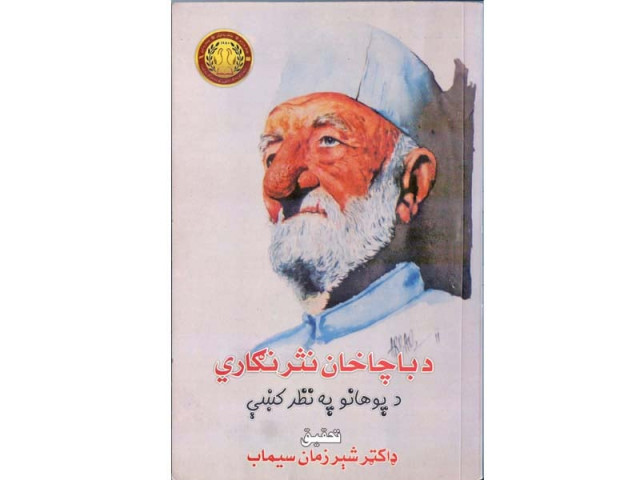Bacha Khan: Using the pen to move thousands
Khan Abdul Ghafar Khan’s prose reviewed in Pashto scholar’s new book

Khan Abdul Ghafar Khan’s prose reviewed in Pashto scholar’s new book.
Seemab, a researcher and scholar at the Pashto Academy, University of Peshawar, has authored many books in Pashto on diverse subjects. The current book spreads over 80 pages and has been published by a Dubai-based Pashto literary society.
“Bacha Khan’s contribution to Pashto literature will help students and researchers learn about his thoughts on influencing the socio-political fabric of Pukhtuns,” Seemab adds. His work includes critical analyses from different scholars on Bacha Khan’s prose, his speeches, letters and articles printed in the Pakhtun Journal, a monthly publication. The book also includes an analysis of the leader’s political struggle which has been documented in Zama Jwand Aou Jaddujahad (My life and struggle) – an autobiography of Bacha Khan.
“Besides being a great political visionary, Bacha Khan was also a pioneer of unique prose style in Pashto,” says Seemab. “He adopted a style that touched the hearts and minds of the common person.”
Seemab’s book quotes research scholar and poet Mushtaq Majrooh Yousafzai as saying that Bacha Khan launched a chain of Azad schools in 1921, when for the first time Pashto was the medium of instruction. “Bacha Khan used to say if one denigrates his own language; he denigrates himself, and if he loses his language, it will be lost forever one day,” said Mushtaq. Bacha Khan introduced the mushaira culture, and hosted writers and poets, helping Pashto literature grow.

An Afghan scholar, Sadeequllah Rishteen, said in the book, “Being a Pukhtun political stalwart, Bacha Khan’s expression is direct, candid, brief and clear. His critical commentary on Wazir Mohammad Gul Khan Momand’s book regarding Pashto script shows Bacha Khan’s literary taste, literary criticism, his understanding of analytical explication of Pashto prose and poetry.” Calling Bacha Khan “no lesser than a tasteful literary figure,” Rishteen said Bacha Khan wanted Pukhtun writers and poets to explore Pashto language and literature.
While sharing his thoughts on the writing skills of Bacha Khan—as framed in Seemab’s work—Professor Dawar Khan Daud remarked being a nonviolent leader, Bacha Khan insisted Pukhtuns rise in their hour of need through pen and urged them to learn the significance of education. His literary movements produced great playwrights, fictionists and poets.
“Bacha Khan’s entire life was an epitome of simplicity and a real picture of Pukhtun culture. This simplicity trickles down through his writings, and therefore, are a good example of eloquence,” Da Bacha Khan Nasr Nigari quotes Daud as saying.
Published in The Express Tribune, October 1st, 2015.












COMMENTS
Comments are moderated and generally will be posted if they are on-topic and not abusive.
For more information, please see our Comments FAQ